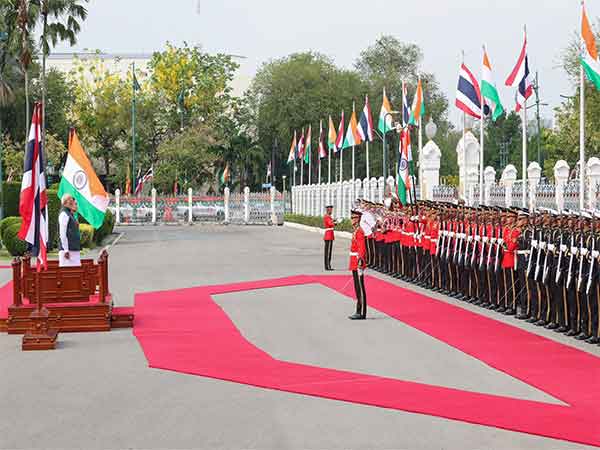Asian Development Bank grants USD 3 million to support Pakistan's flood response
Sep 01, 2022

Islamabad [Pakistan], September 1 : Amid widespread floods across, the Asian Development Bank (ADB) on Wednesday approved a USD 3 million grant to support Pakistan's emergency relief efforts.
The grant, financed from the Asia Pacific Disaster Response Fund (APDRF), will help fund the immediate purchase of food supplies, tents, and other relief goods to support flood victims across the country, read ADB press release.
APDRF is a special fund designed to fast-track grants to ADB developing member countries affected by disasters triggered by natural hazards.
"ADB stands with the people of Pakistan during these difficult times," said ADB Director General for Central and West Asia Yevgeniy Zhukov.
"We are committed to working with the government and other development partners to help Pakistan overcome the devastating impact of this natural disaster and provide immediate relief to affected families," added Zhukov.
More than 6.4 million people in Pakistan are in dire need of humanitarian aid as the devastating floods continue to wreak havoc in the country, the World Health Organization (WHO) said on Wednesday.
"Our team is also helping to assess the damage caused by floods to draw up plans to support longer-term rehabilitation efforts and strengthen communities' climate resilience," ADB Country Director for Pakistan Yong Ye said.
Over 33 million people are estimated to have been affected by the floods with more than 1,000 deaths reported and about 1,500 injured. The release added that almost half a million people are currently in relief camps.
Heavy rains across Pakistan have triggered flash floods, landslides, and glacial lake outbursts. In July, the country received more than 60 per cent of the average annual monsoon rainfall in just three weeks.
Pakistan has identified several priority needs: food security, agriculture and livestock, health, water, sanitation, hygiene, shelter, and non-food items.
ADB is coordinating with other partners to support Pakistan's response, including through the ADB-supported National Disaster Risk Management Fund created to strengthen Pakistan's climate and disaster risk resilience and to efficiently channel funds to support local authorities' disaster resilience work, said the release.
As districts in Pakistan continue to be affected by massive monsoon rainfall and unprecedented levels of flooding, the World Health Organization (WHO) has warned of significant public health threats facing affected populations, including the risk of further spread of water and vector-borne diseases such as malaria and dengue fever.
Around 888 health facilities have been damaged in the country, of which 180 are completely damaged, leaving millions of people lacking access to health care and medical treatment, as reported in many affected districts.
"According to a preliminary assessment conducted by WHO and humanitarian partners, the current level of devastation is much more severe than that caused by floods in Pakistan in previous years, including those that devastated the country in 2010," said Dr Ahmed Al-Mandhari, WHO's Regional Director for the Eastern Mediterranean.
"WHO has initiated an immediate response to treat the injured, provide life-saving supplies to health facilities, support mobile health teams, and prevent the spread of infectious diseases."




















